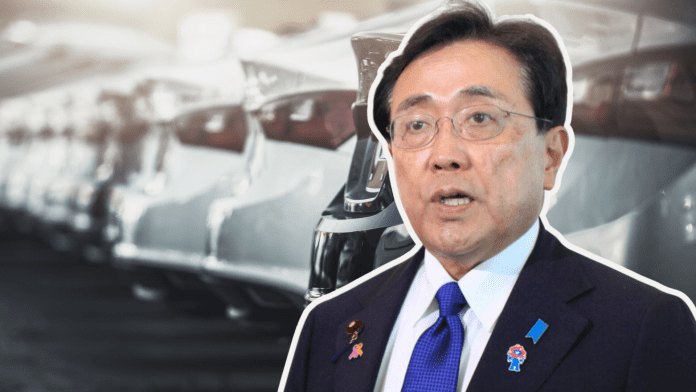Japan is opposing the United States’ 25% auto tariffs, a sticking point in ongoing trade talks between the two nations. Ryosei Akazawa, Japan’s chief trade negotiator, reiterated the country’s position Thursday before departing for Washington to lead the seventh round of negotiations with U.S. officials.
Akazawa said Japan considers the tariffs unacceptable, especially given the scale of Japanese automakers’ operations in the U.S. Japanese automakers produce approximately 3.3 million vehicles annually in America, more than double the 1.37 million units they export to the country. Those operations have generated more than $60 billion in investment and created 2.3 million local jobs, according to Akazawa.
The tariff is part of a broader set of U.S. trade measures set to take effect July 9 if no agreement is reached. These include an across-the-board tariff increase from 10% to 24%, a 25% levy on imported cars and auto parts and a 50% tariff on steel and aluminum.
Negotiations have dragged on for more than two months with no agreement. While Washington aims to reduce its trade deficit, particularly in the automotive sector, Tokyo is working to protect one of its most critical economic industries. Japan’s trade surplus with the U.S. reached ¥8.6 trillion ($59.4 billion) last year, with 82% of that gap attributed to cars and car parts.
Akazawa also noted that roughly 300,000 vehicles produced by Japanese automakers in the U.S. are exported to other global markets, further contributing to the American trade balance.
Despite ongoing pressure, Tokyo is holding firm on its desire to resolve all tariff disputes as part of a comprehensive agreement that includes sector-specific levies. Akazawa indicated that while the July 9 deadline is in mind, Japan will avoid making any concessions that might weaken its negotiating position.



